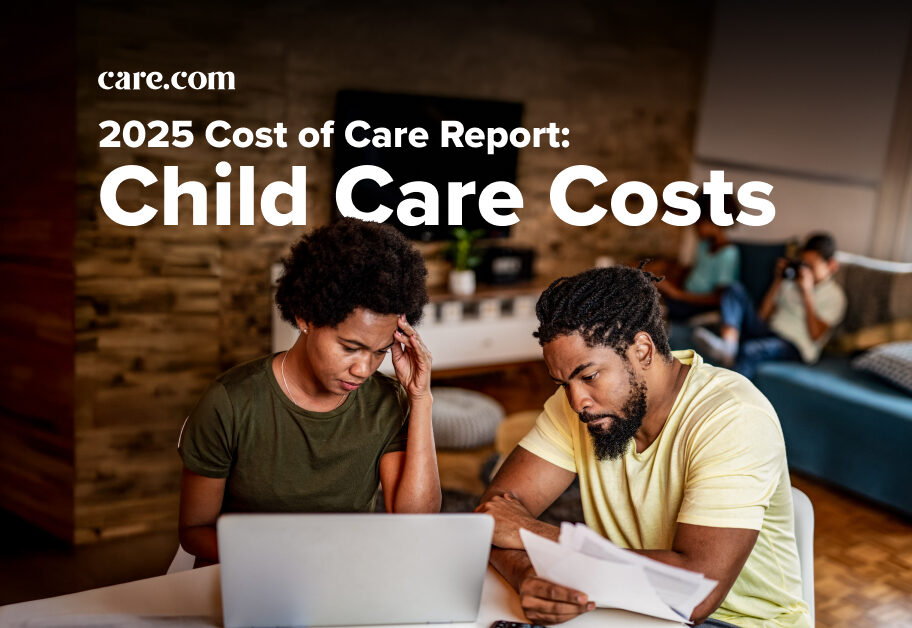In this article
Becoming a parent is a beautiful and rewarding experience, but it can also be unrelenting, particularly if you’re one of the many moms struggling to find time away to rest and recuperate. According to the Pew Research Center, more than half of moms say “that they don’t have enough time away from their children to get together with friends or pursue hobbies and other interests.” And if you do manage to eke out a half an hour here or there for self-care, the mom guilt may not be far behind.
But as hard as it is to prioritize, time away from your kids (whether it is truly alone — enjoying a hot bath with a book and a drink of choice — or a yoga class with friends) is vital to maintain your overall health and prevent burnout. Here, fellow moms share their experiences with this universal struggle, and experts explain why alone time is so necessary, offering tips on how to carve out that valuable time.
Key takeaways
- Prioritizing a mother’s self-care is crucial for well-being and preventing burnout, as neglecting it can negatively impact a mother’s health and relationships.
- Finding alone time is challenging due to limited time, lack of support and societal pressures, which causes mom guilt about taking time away.
- Consistent, small acts of self-care, even brief ones, can significantly improve a mother’s mental and emotional state throughout the day.
- Self-care is not selfish; it’s essential for modeling healthy behavior and enables mothers to be more patient and present parents.
Why alone time matters
At its core, a mother’s self-care isn’t an indulgence — it’s preservation. It’s common knowledge that taking care of your mental well-being is necessary for overall good health, but when you’re entrenched in child rearing, it can be easy to forget (or put aside) your own basic needs. “When we become mothers, our lives understandably revolve around our children, but it’s crucial to remember that we are multifaceted beings with our own needs, desires and aspirations,” says Mary Breen, licensed clinical social worker and clinical director and founder of Repose.
Mothers are not machines. Here’s how taking time for yourself affects you and those closest to you.
It lowers stress, burnout and depression
“I can tell I need [alone time] when I get more irritable,” says Amy Volle, a restaurant supervisor/server and mom of two in Edina, Minnesota. “I get short with my kids and easily overstimulated.” Volle shared that something as simple as them asking for juice or a snack can be enough to tip her over into feeling resentful.
Sometimes your need for time alone can sneak up on you like that. And in that way, “time to [yourself] is preventative,” says Kate Kripke, therapist and coach.
“When mothers consistently neglect alone time and self-care, they often experience increased stress, emotional exhaustion and a diminished sense of self-worth,” says Breen. “This can manifest as symptoms like anxiety, irritability or even physical ailments. The larger risk is that these cumulative stressors can lead to burnout, strained relationships and, in some cases, even depression.”
You have a healthier relationship with your child
When you don’t foster that sense of self and cultivate your relationship with yourself outside of being a mother, Kripke explains that you are “at risk for developing a codependent relationship with [your] children.”
Ideally, you want to foster a secure attachment, which Kripke defines as “a relationship with a child that can tolerate separation and connection.” She adds, “If a mother puts all of herself, all of her energy, all of her focus into her child, it’s much harder for that mother to tolerate” the natural development of independence that occurs as a child gets older, such as forming friendships and going off to school.
Why it’s so hard to find “me time” as a mom
With these kinds of stakes, alone time should be ticking up your list of priorities. But moms know that’s much easier said than done. Here are just a few of the barriers to taking time for yourself.
Limited hours in the day
There is only so much time in a day, and when those hours are taken up with work, appointments, scheduled activities, cleaning and more, it’s hard to stop and make the time for yourself. “That’s the biggest struggle for me,” says Volle. “You have an inner monologue: ‘This, this and this need to be done. Oh, I forgot to do this. It’s hard to turn that off.’”
A lack of community support
For a lucky few, child care (either in the form of a supportive partner, family and/or friends or hiring a babysitter) is plentiful, and prioritizing self-care feels achievable. But for many more, they’d settle for just being able to tackle chores without kids underfoot, or better community resources.
“Our society needs to prioritize families and the mental health of caregivers,” says Sarah Calloway, a stay-at-home-parent, entrepreneur and mom of two in Seattle. “We don’t invest in schools, we don’t invest in child care, we don’t invest in programs for parents who stay at home.”
Mom guilt
There is an unspoken assumption that to be a mom means to be selfless and 110% focused on their children. So stepping away for some much-needed “mother’s self-care time” can leave you feeling like a bad mom.
“I got totally lost in the first few years of motherhood — to the point where I didn’t know myself. I didn’t know my spouse. I was literally just mom.”
—Sarah Calloway, a Seattle mom
How to ditch mom guilt
As long as your kids are safe, stepping away from them now and then will make you a better mom. Everyone knows the analogy of putting on your mask before helping someone else with theirs. Thinking of a mother’s self-care as essential rather than optional can help shift perspective and reduce guilt because “neglecting self-care can ultimately hinder our ability to be the parent we aspire to be,” says Breen.
For Calloway, experiencing severe burnout negated any feelings of guilt she had around taking care of herself. While being a stay-at-home parent, she reached a point of realization that she was just pushing through her day-to-day life and growing increasingly impatient with her family. “I got totally lost in the first few years of motherhood — to the point where I didn’t know myself,” she says. “I didn’t know my spouse. I was literally just mom.” Accepting a job outside the home and hiring a nanny helped her “reconnect with who [she is] independent of kids.” Now, as a stay-at-home parent once again, she shares that her “family’s survival depends on” her taking time for herself.
If you experience guilt when planning time for yourself, remember the following:
You’re responsible for your health and happiness
While becoming a mom comes with a laundry list of new things to learn and do, your well-being needs to remain a priority. When there is not something outside of your “job” that you can engage in that brings a sense of pleasure or play, you will burn out, Kripke says. “[You] need space to process and metabolize stress,” she notes.
For Paulette Hall, a custom closet designer and mom of four in New York City, that realization hit hard after being hospitalized for a mini-stroke (also known as a transient ischaemic attack). She now reminds herself, “I need to survive. I need to take care of Paulette. No one else is going to do that for her.”
Social rules and expectations are made up
“While guilt is an important emotion that lets us know our moral compass of ‘right’ and ‘wrong’ is working, it doesn’t always point to our own morals, expectations or values,” points out Megan Davis, licensed clinical social worker and perinatal mental health-certified therapist.
She encourages moms to question those feelings and ask themselves what social rule or expectation they would be breaking if they missed bedtime to get dinner with a friend, for example. Ask yourself whether these feelings are informed by your values or something you believe others expect of you.
Finally, she advises moms to consider what they would say to a loved one who is struggling and would benefit from some much-deserved “me time.” After all, people are often harder on themselves than others.
Self-care makes you a better mom
Through the actions that you take each day, you are modeling values for your child. “Discuss your self-care plans and explain why it’s essential for your overall well-being,” Breen says. “And when alone time is hard to come by or if there is a hiccup in your child care plans, consider alternative ways to engage together that also support your needs. By embracing flexibility in how we view self-care, it ensures that it remains a priority, even amidst the demands of parenting.”
This approach also teaches your children the importance of self-care as a lifelong skill.
Baby steps still move you forward
No one says you have to make these huge changes overnight. “Big change happens through many little steps,” Kripke says. “This all-or-nothing response is a fear response.”
5 realistic mother’s self-care tips
Sometimes taking care of yourself as a mom can feel like a frivolous and impossible task, something you’ll get to when your kids are older. As Breen says, “I think it’s important to acknowledge that not everyone has the luxury of extended periods of alone time.” But she points out that consistency in short bursts of self-care are valuable and add up. “Just five minutes of meditating three to four times a day will have a huge impact on rewiring how you cope with stress,” she says. “And 10 minutes of movement after each meal can replenish your energy while benefiting your mind and body.”
Here are more actionable advice and tips from moms and experts for fitting self-care into your day, even if you only have a few minutes.
“Self-care doesn’t have to be an extravagant or time-consuming act. It can be as simple as listening to a favorite song or podcast instead of listening to ‘Wheels on the Bus’ for the millionth time.”
— Megan Davis, therapist
1. Tune in to your feelings and needs
“Of course you feel lonely, of course you feel burnt out, of course you feel overwhelmed, of course you feel anxious,” says Kripke. Regardless of what your feelings are in the midst of motherhood, they are valid, she notes. But it is important to question and understand what might be contributing to those feelings if they are causing you or your loved ones distress. Then, make a plan to “unhook [yourself] from whatever habit or system that’s keeping [you] in that place,” says Kripke.
And if you find that you are persistently struggling to take time for yourself, “communicate your needs [to your loved ones], or you feel overwhelmed with guilt, it may also be time to speak with a mental health professional who can support you in these areas,” advises Davis.
2. Sprinkle self-care into your day
“Find those little snippets [of time] and do anything you’re remotely interested in,” recommends Calloway. “You don’t have to reinvent yourself.” What’s important is to just do something for yourself — and make time for it consistently.
“Self-care doesn’t have to be an extravagant or time-consuming act,” says Davis. “It can be as simple as listening to a favorite song or podcast instead of listening to ‘Wheels on the Bus’ for the millionth time. It can be stepping outside for five minutes and noticing the temperature of the air, and sights and sounds of nature. It can also be waking up 10 minutes early to enjoy a cup of coffee or tea in silence.”
Those small moments add up and make it much easier to incorporate self-care into your routine consistently. “If we think we need big spaces of time, we’re actually very unlikely to engage in them,” points out Kripke. While having dinner out with friends or a weekend away probably sounds amazing, Kripke says it’s actually the smaller amount of breaks done consistently and regularly that have the bigger impact on your nervous system.
3. Find your community
It can be hard to ask for help when you’re focused on just making it through another day, but support is key in making time for yourself. “Talk to other moms, talk to someone,” recommends Hall. This can look like joining community-sponsored new parent groups, finding local groups on social media or frequenting typical family hangout spots, like playgrounds, libraries and play spaces.
And if you’re having trouble making connections within your community — or even if you are just looking for more like-minded moms — Kripke suggests looking into The Mom Walk Collective. It’s a non-profit organization that arranges walks in the United States with the mission of helping moms find their village.
4. Reject revenge bedtime procrastination
At the end of the day, once the kids are in bed, it can be so tempting to soak up every last second of time alone. But it’s important that you don’t sacrifice quality sleep under the guise of self-care. “Just like our children, having a consistent bedtime routine that is calming and predictable can help moms get to bed earlier,” says Davis. “Sleep is so important for [problem solving], decision-making and emotional regulation — all important aspects of parenting!”
5. Put joy on your to-do list
“Figure out what makes you happy, then prioritize that,” advises Volle. “Put it on your list somewhere.”
And if decision paralysis is giving you grief, or you’re having trouble remembering what activities bring you joy, “Consider revisiting past interests or hobbies you enjoyed before motherhood,” says Breen, “but don’t be afraid to try new things as well. Engage in activities that pique your curiosity, and pay attention to how they make you feel. It’s through this process of trial and error that you can discover what truly resonates with you.”
“Engage in activities that pique your curiosity, and pay attention to how they make you feel. It’s through this process of trial and error that you can discover what truly resonates with you.”
—Mary Breen, social worker and founder of Repose
Moving forward on your path to alone time
Maintaining your mental health needs to be at the top of your list, for you and your children’s long-term well-being. It can be difficult to do so when you’re trying to meet the needs of your children, so it’s important to make time away a priority, even if it’s only a few minutes.
It can feel uncomfortable to shift your attention from your child’s needs to your own, acknowledges Davis. Tune into those feelings, name them and then, “release the need to find the ideal way to use alone time and instead, approach it from a place of curiosity and information-gathering,” she advises. She suggests writing down activities you have been curious about, would like to try or that you enjoyed prior to becoming a mom.
Then, make time for those activities, because as Breen says, “consistency, even in small doses, is key to building positive habits and seamlessly integrating self-care into your daily life.”
Remember that time alone isn’t a selfish or frivolous indulgence; it’s an investment in your physical and mental health and provides a powerful example for your children.





